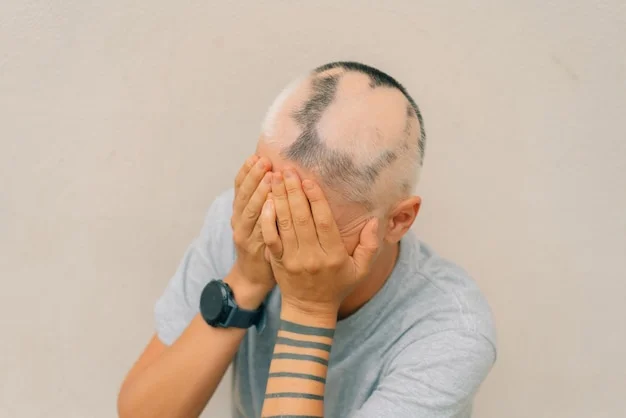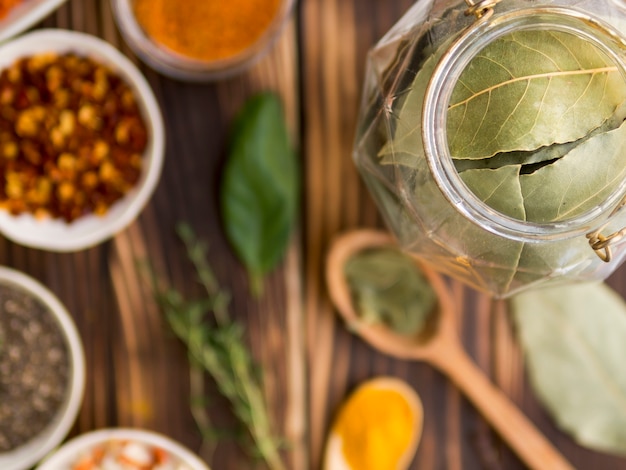Best Ayurvedic Medicines for Alopecia Areata – Natural Remedies for Hair Regrowth

Introduction to Ayurvedic Treatment for Alopecia Areata
Alopecia areata, an autoimmune condition characterized by sudden, patchy hair loss, can significantly impact an individual's emotional and psychological well-being. Ayurveda, the ancient Indian system of medicine, offers a holistic approach to managing Alopecia Areata by addressing the underlying imbalances in the body and promoting overall hair and scalp health. Utilizing a combination of herbal remedies, therapeutic oils, dietary adjustments, and lifestyle modifications, Ayurveda aims to restore balance, strengthen hair follicles, and encourage natural hair regrowth.
Don't wait or self medicate. Start chat with Doctor NOW
Historical Roots & Ayurvedic Significance
In Ayurveda, hair health is closely linked to the balance of the body's doshas—Vata, Pitta, and Kapha. Alopecia areata is often associated with an imbalance in the Vata dosha, which governs movement and nerve impulses, leading to disruptions in the hair growth cycle. Ancient Ayurvedic texts emphasize the use of specific herbs and treatments to nourish the hair, detoxify the scalp, and strengthen the roots. By addressing both internal and external factors, Ayurveda provides a comprehensive framework for managing hair loss conditions like Alopecia Areata.
Key Ayurvedic Remedies for Alopecia Areata
1. Bhringraj (Eclipta alba)
Bhringraj is often referred to as the "King of Herbs" for hair in Ayurveda due to its profound rejuvenating properties.
- Benefits:
- Stimulates hair follicles
- Promotes hair regrowth
- Strengthens hair roots
- Prevents premature graying
- Usage:
- Oil: Apply Bhringraj oil to the scalp and massage gently. Leave it on overnight for maximum absorption.
- Powder: Mix Bhringraj powder with water or yogurt to form a paste and apply as a hair mask.
2. Amla (Emblica officinalis)
Amla, or Indian gooseberry, is rich in vitamin C and antioxidants, essential for healthy hair.
- Benefits:
- Nourishes the scalp
- Reduces inflammation
- Strengthens hair strands
- Enhances hair pigmentation
- Usage:
- Oil: Use Amla oil as a scalp massage oil.
- Juice: Consume Amla juice daily to boost internal health and promote hair growth.
- Hair Mask: Apply Amla paste to the scalp and hair, leave it for 30 minutes, and rinse thoroughly.
3. Ashwagandha (Withania somnifera)
Ashwagandha is an adaptogenic herb that helps the body manage stress, a known trigger for Alopecia Areata.
- Benefits:
- Reduces stress and anxiety
- Balances hormones
- Supports overall vitality
- Usage:
- Powder/Capsules: Take Ashwagandha supplements as per Ayurvedic recommendations.
- Tea: Brew Ashwagandha tea to incorporate into your daily routine.
4. Brahmi (Bacopa monnieri)
Brahmi is renowned for its cognitive and stress-relieving properties.
- Benefits:
- Calms the nervous system
- Enhances mental clarity
- Reduces stress-induced hair loss
- Usage:
- Oil: Apply Brahmi-infused oil to the scalp.
- Powder: Mix Brahmi powder with water or milk and consume daily.
5. Triphala
Triphala is a combination of three fruits—Amalaki, Bibhitaki, and Haritaki—that detoxify the body and support digestion.
- Benefits:
- Detoxifies the body
- Enhances nutrient absorption
- Balances doshas
- Usage:
- Powder/Capsules: Take Triphala supplements as per dosage instructions.
- Tea: Brew Triphala tea for daily consumption.
6. Medhya Rasayana Herbs
These herbs support mental clarity and reduce stress, which are crucial for managing autoimmune conditions like Alopecia Areata.
- Examples:
- Shankhapushpi (Convolvulus pluricaulis)
- Jatamansi (Nardostachys jatamansi)
- Benefits:
- Enhances cognitive function
- Reduces anxiety and stress
- Usage:
- Powder/Capsules: Consume as directed by an Ayurvedic practitioner.
- Infusions: Prepare herbal infusions or teas.
Dietary and Lifestyle Recommendations
1. Balanced Diet
A diet rich in proteins, vitamins, and minerals is essential for hair health.
- Include:
- Leafy greens
- Nuts and seeds
- Whole grains
- Fresh fruits and vegetables
- Healthy fats (e.g., ghee, olive oil)
- Avoid:
- Processed foods
- Excessive sugar and salt
- Caffeine and alcohol
2. Hydration
Adequate water intake ensures optimal hair hydration and scalp health.
3. Stress Management
Incorporate stress-reducing practices such as:
- Yoga: Enhances flexibility and reduces stress.
- Meditation: Promotes mental clarity and relaxation.
- Pranayama (Breathing Exercises): Improves oxygen flow and reduces anxiety.
4. Regular Exercise
Engaging in regular physical activity boosts blood circulation, delivering essential nutrients to hair follicles.
Potential Side Effects & Precautions
- Herbal Sensitivities: Some individuals may experience allergic reactions to certain herbs. It is advisable to perform a patch test before using topical applications.
- Dosage Accuracy: Follow the prescribed dosage instructions carefully to avoid potential side effects.
- Consultation: Always consult with a qualified Ayurvedic practitioner before starting any new herbal regimen, especially if you are pregnant, nursing, or have underlying health conditions.
Frequently Asked Questions (FAQ)
What is the most effective Ayurvedic herb for Alopecia Areata?
Bhringraj is widely regarded as the most effective Ayurvedic herb for promoting hair regrowth and strengthening hair follicles. Its comprehensive benefits make it a cornerstone in managing Alopecia Areata.
Can Ayurveda completely cure Alopecia Areata?
While Ayurveda can significantly manage and reduce the symptoms of Alopecia Areata by addressing underlying imbalances, individual results may vary. Consistent use of prescribed remedies and lifestyle changes are essential for optimal outcomes.
How long does it take to see results from Ayurvedic treatments for Alopecia Areata?
Results vary based on the severity of the condition and individual response. Some individuals may notice improvements within a few weeks, while others might require several months of consistent treatment.
Are there any side effects of using Ayurvedic herbs for hair loss?
Most Ayurvedic herbs are safe when used correctly, but some individuals may experience mild side effects such as digestive discomfort or allergic reactions. It is crucial to consult with a practitioner to tailor treatments to your specific needs.
Can Ayurvedic treatments be combined with conventional medicine for Alopecia Areata?
Yes, Ayurvedic treatments can complement conventional therapies. However, it is essential to inform your healthcare providers about all treatments you are undergoing to avoid potential interactions.
Is Bhringraj safe for daily use?
Yes, Bhringraj is generally safe for daily use when applied as directed. However, excessive use may lead to scalp irritation in some individuals. Moderation and following professional guidance are key.
Where can I find authentic Ayurvedic medicines for Alopecia Areata?
Authentic Ayurvedic medicines can be obtained from reputable Ayurvedic pharmacies, certified practitioners, or trusted online Ayurvedic stores. Always verify the quality and authenticity of the products before purchase.
Conclusion & Expert Insights
Ayurveda offers a holistic and natural approach to managing Alopecia Areata by addressing the root causes and promoting overall hair and scalp health. Through the use of potent herbs like Bhringraj, Amla, and Ashwagandha, along with dietary and lifestyle modifications, individuals can experience significant improvements in hair regrowth and reduced hair loss. Consulting with a qualified Ayurvedic practitioner ensures personalized and effective treatment, integrating ancient wisdom with modern wellness practices for sustained hair health and emotional well-being.
References & Further Reading
- Lad, V. (2002). Ayurveda: The Science of Self-Healing. Lotus Press.
- Sharma, P.V. (1995). Ayurvedic Healing: A Comprehensive Guide. Lotus Press.
- Mukerjee, P.K., et al. (2010). "Adaptogenic and Anxiolytic Effects of Ashwagandha (Withania somnifera) in Experimental Models." Journal of Ethnopharmacology, 132(2), 185-188.
- National Center for Complementary and Integrative Health. (2021). "Bacopa Monnieri."
- National Institute of Ayurveda:
- Journal of Ayurveda and Integrative Medicine for research articles on herbal treatments and hair health.
Got any more questions?
Ask Ayurvedic doctor a question and get a consultation online on the problem of your concern in a free or paid mode.
More than 2,000 experienced doctors work and wait for your questions on our site and help users to solve their health problems every day.



